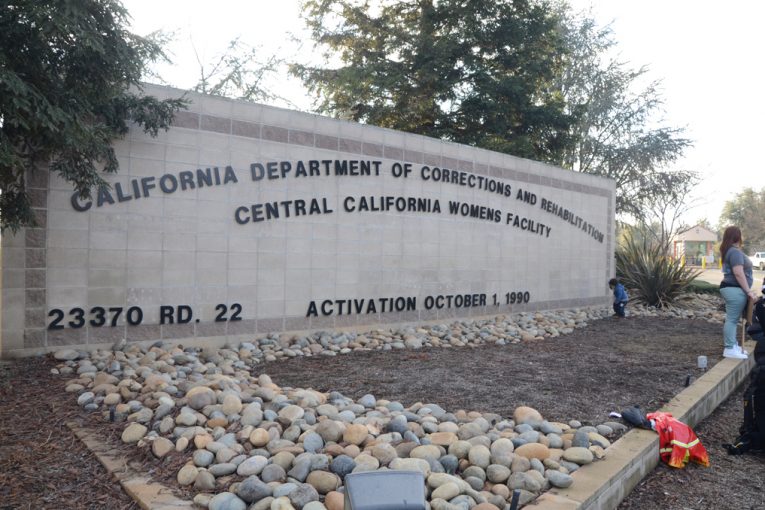

Creator: Daniel Arauz
Copyright: Daniel Arauz – Danarauz@gmail.com
By Ghostwrite Mike and The Mundo Press
CHOWCHILLA, CA – The California Department of Corrections and Rehabilitation (CDCR) Youth Offender Program (YOP) is a novel curriculum that uses trained peer mentors to facilitate educational self-help groups and cultivate sustained supportive mentee relationships by conducting one-on-one encounters that prompt younger residents in modalities intended to affirm self-regulation, teach emotional intelligence and model pro-social conduct.
Valley State Prison (VSP) represents the agency’s frontline YOP effort to engage its youngest and most volatile residents under the age of 26 who are transferred to VSP via administrative override, assigned a mentor, plugged into a compulsory schedule of self-help groups and afforded preferential placement in programs.
VSP gives them an opportunity to experience a low level security facility, while avoiding the perilous violence, politics and the absence of programs they would otherwise contend with if sent to the higher level security facilities their respective sentences and custody levels would normally dictate.
Clarence Kilber, one of the state’s few lead YOP Mentor Trainers positioned to inculcate prospective mentors and pair them with newly arriving mentees, said “The thinking is, if YOPs start at the rougher spots, they will succumb to the dictates there and be worse for it. Prison politics will swallow these young men whole, chew them up and spit them out.
“However, if instead they are given prime programming opportunities on the front end of their term, we can prompt them, model alternative choices and they can then engage early, develop positive habits and earn the right to stay at a place like VSP that has tablets, grass yards, therapy dogs, pool tables, big screen televisions and multiple college options, including a bachelor’s degree program.”
Dr. Joseph Piazza, the State Supervisor of Career and Technical Education (CTE) programs, said early exposure to programs for newly committed residents arriving from reception centers presents the “greatest likelihood of imprinting on rehabilitation.”
At VSP, YOPs attend daily classes for 52 weeks, completing an interactive curriculum taught by trained resident mentor facilitators. In turn, the YOP Mentors receive six units of group counseling college credit conferred by Fresno Pacific University (FPU), upon the completion of 500 logged hours of face to face encounter time with their respective YOP mentees.
Louis Baca, a VSP resident who previously held the Lead YOP Mentor position on his yard after completing the mentor training and earned college credit from FPU applied them towards his Associate’s degree, which he recently earned.
“If humanity is the measure by which we demonstrate our insight, empathy, remorse and transformation, I hope the young men I’ve mentored take a piece of me with them as they travel (through) this experience. Be it groups, poetry circles or walking laps with a young dude, being of service is the most rewarding thing I’ve ever done. I’m serving LWOP, but the purpose-filled life is the one worth living,” he said.
Dasein “two-four” Lauese, a YOP serving 16 years for an East Bay Area shooting, said the YOP gave him alternatives to explore.
Lauese told us after a recent intramural football game, “I likely would’ve engaged in and suffered from all the foreseeable bad outcomes that prison politics tend to force upon a big guy like me – big guys are expected to make waves. I’m still a work in progress, but I made a conscious decision to stay here, apply myself, steer clear of the shenanigans, dive into my vocational education and pursue my college degree.
“I’m discipline free, strengthening my relationship with my lady, and hella glad to be at VSP, as opposed to some place with less opportunities. My kids need the best version of their father.”
Departing from the framework of the three strikes era, neuroscience now affirms the brain’s development cycle extends to age 26, supporting prevailing rehabilitative philosophy that has shifted how mitigation, culpability and transformation are viewed legally.
As a result, the entire sentencing framework and penological posture of the courts and corrections officials in California now identifies “youth offenders” under the age of 26 as the most salvageable and retractable rehabilitative priority.
Not all of VSP’s 3,500 residents support the YOP effort, or the preferential mandates it extends to the slightly more than 500 YOPs allowing them to get into programs ahead of older residents and lifers.
Jose Rael, an Apache native YOP preparing to parole from VSP after nearly a decade in custody, says his spiritual community, the ReEvolution Group peer mentors and the Trauma Talks program helped him “find a balance that has kept me focused on returning to freedom.”
An avid artist, songwriter, and musician, Rael plans “to use my art to make a difference in the world. I hope to use my talent to find my way into the entertainment industry and use my story to stay connected to the community of guys still behind the fence.”
When asked about their future goals, Lauese and Rael said they’d each recently touched base with film producer and Anti-Recidivism Coalition founder Scott Budnick, who motivated them to chase freedom by engaging in VSP’s programs.
Lauese gave an animated smile and said, “I plan to become a YOP Mentor, chase that CSU-Fresno Bachelor’s degree and knock down a few songs in Common’s Rebirth Of Sound music program with my Barz Behind Bars guys.”
Rael thanked his friends who have gotten released and stayed in touch with him, saying, “it’s inspiring to see people that were once here, who are now free, living their best life and setting an example. Mentorship is a powerful motivator. I want to be one of those examples.”
